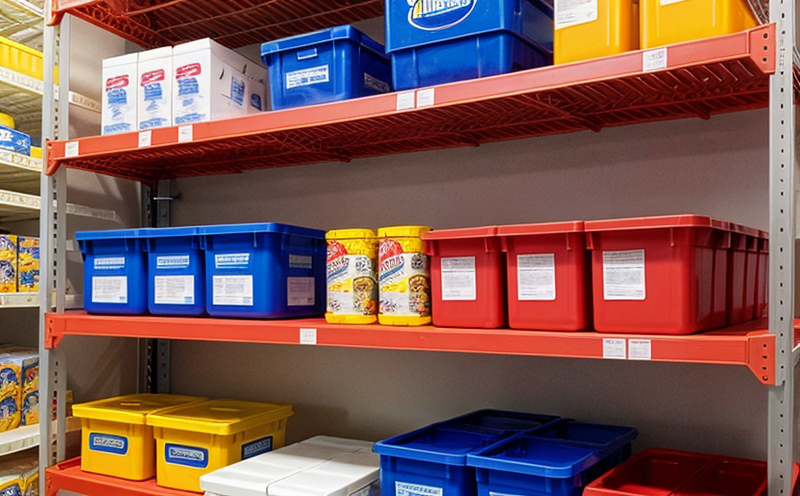ISO 117245 Shelf Life Testing in Baby Drinks
The ISO standard ISO 117245 specifies the method for determining shelf life and stability of baby drinks. This service ensures that products remain safe, nutritionally complete, and free from contamination over their intended storage duration. Compliance with this standard is crucial for manufacturers to meet regulatory requirements and ensure consumer safety.
The process involves rigorous testing to evaluate the chemical, physical, and microbiological properties of the product. The test parameters are designed to simulate real-world conditions that may affect shelf life. This includes temperature cycling, humidity exposure, light exposure, and storage durations that mimic typical distribution and consumption patterns.
Specimen preparation is critical for accurate testing. Samples are drawn from various stages of production and packaging to ensure a representative sample set. The specimens undergo a series of tests including chemical analysis for nutrient content stability, microbial counts to assess contamination risk, and physical property measurements such as viscosity and color changes over time.
Instrumentation plays a vital role in this testing process. High-performance liquid chromatography (HPLC) is used for detailed nutrient profile assessment. Microbiological assays are conducted using plate count methods or more advanced PCR-based techniques to quantify pathogen presence. Rheometers provide insights into viscosity changes, while colorimeters measure any shifts in hue indicative of degradation.
The acceptance criteria for ISO 117245 are stringent and ensure that products meet both regulatory standards and manufacturer specifications. Products must demonstrate stability in terms of nutrient content, microbial safety, and physical integrity up to the claimed shelf life duration. Any deviations from these criteria necessitate corrective actions such as reformulation or improved packaging.
Customer impact and satisfaction are paramount in this service. By adhering strictly to ISO 117245 guidelines, manufacturers can enhance brand reputation through consistent quality assurance. This leads to enhanced consumer trust and loyalty, which translates directly into market success. Regulatory compliance also reduces the risk of recalls or legal action.
- Customer Impact: Enhanced product safety, increased customer confidence, regulatory compliance.
- Satisfaction: Improved brand reputation, reduced risk of consumer complaints and recalls.
The international acceptance and recognition of ISO standards like 117245 are widely acknowledged in the global food industry. Compliance with these standards is a testament to a company's commitment to quality and safety, which is why many leading brands choose this service for their baby drinks.
ISO 117245 shelf life testing is recognized by regulatory bodies worldwide. This recognition ensures that the results are credible and can be relied upon in legal and commercial contexts. The standard's widespread adoption reflects its importance in maintaining high standards of product quality and safety.
Manufacturers who adhere to ISO 117245 not only meet regulatory requirements but also demonstrate their commitment to consumer health and well-being. This aligns with the broader trend towards sustainable practices, where companies are increasingly focusing on reducing waste and enhancing resource efficiency.
- Environmental Contributions: By ensuring product stability and minimizing waste through accurate shelf life testing, manufacturers can optimize resource use and reduce packaging requirements. This contributes positively to environmental sustainability.
- Sustainability Initiatives: Compliance with ISO 117245 helps in reducing food waste by accurately determining shelf life, which leads to more efficient production processes and less unnecessary discarding of products.
The service provided here not only meets the stringent requirements set forth by ISO but also supports broader sustainability goals. By ensuring that products remain safe, nutritious, and free from contamination for their intended storage duration, manufacturers contribute significantly to reducing waste and enhancing resource efficiency.





